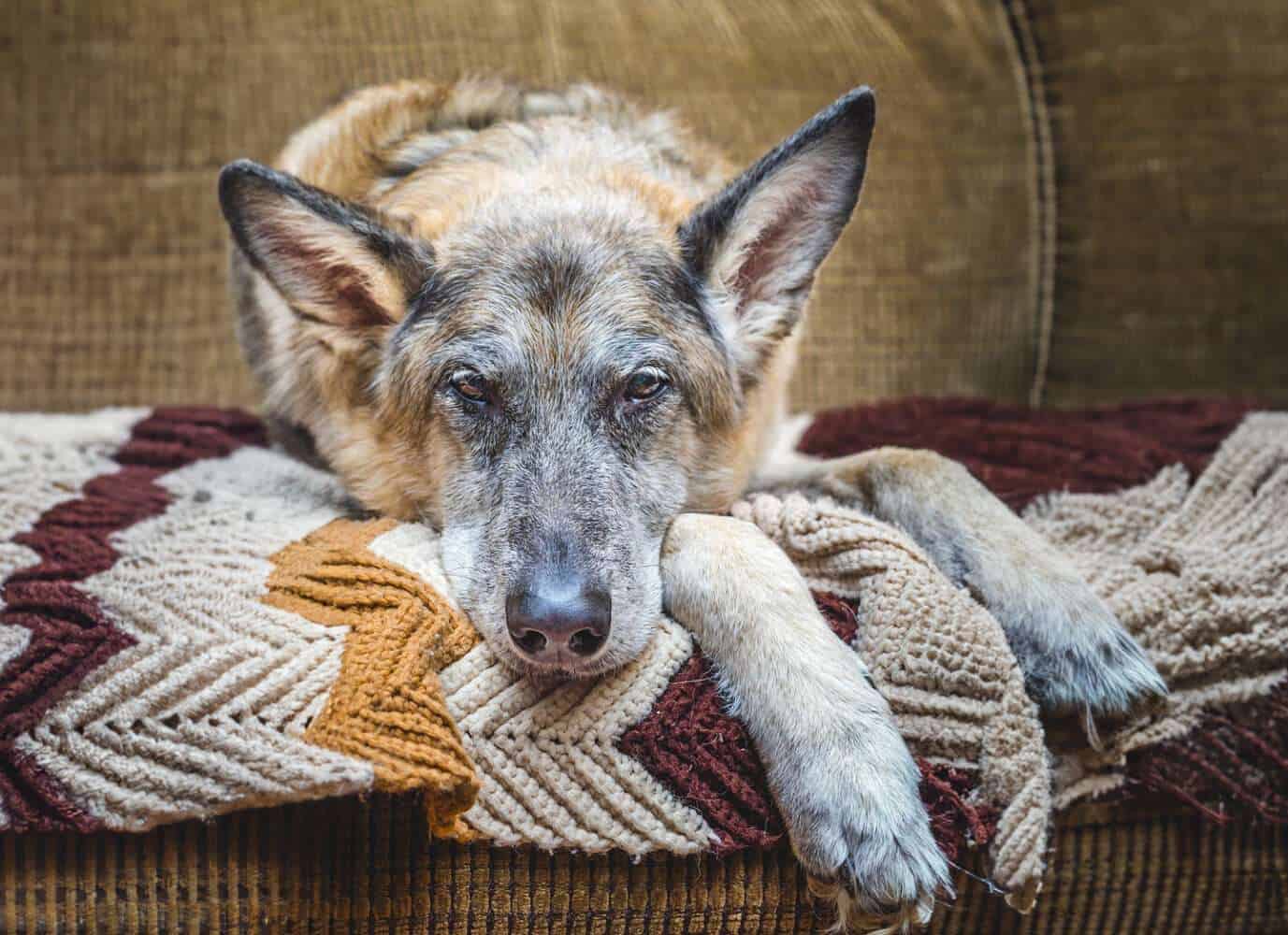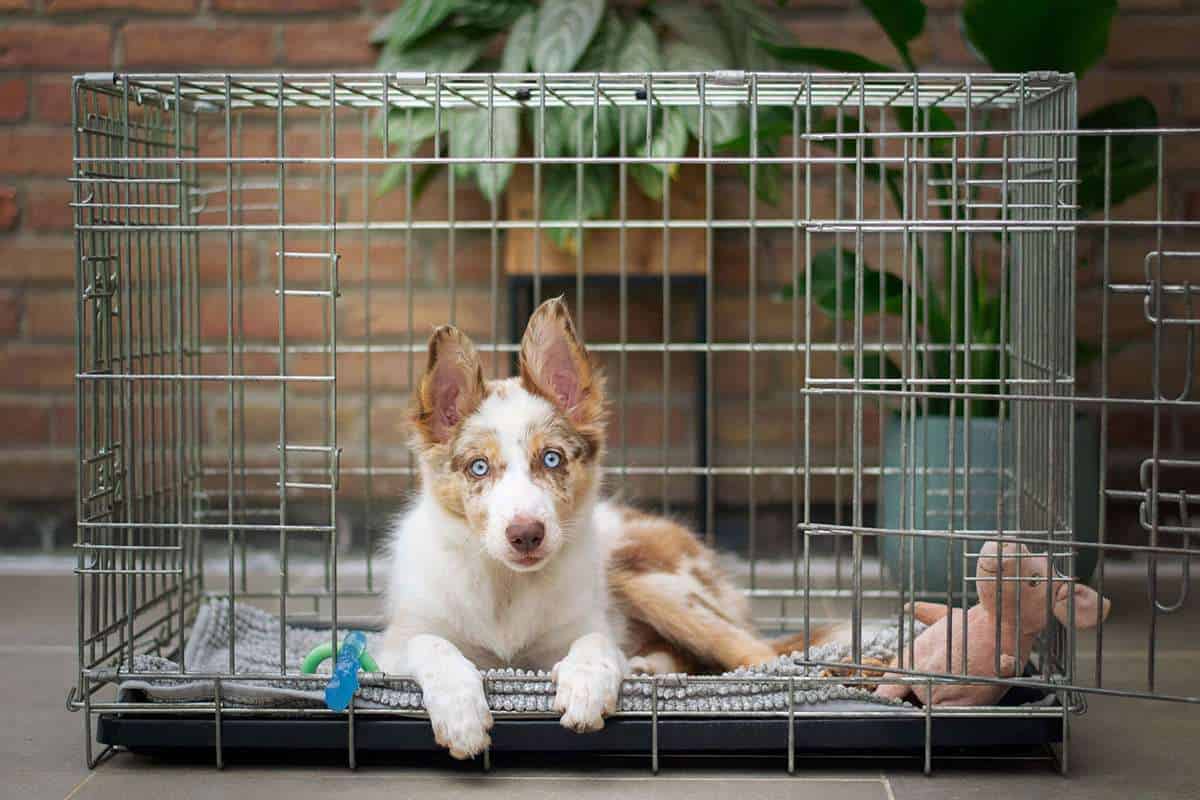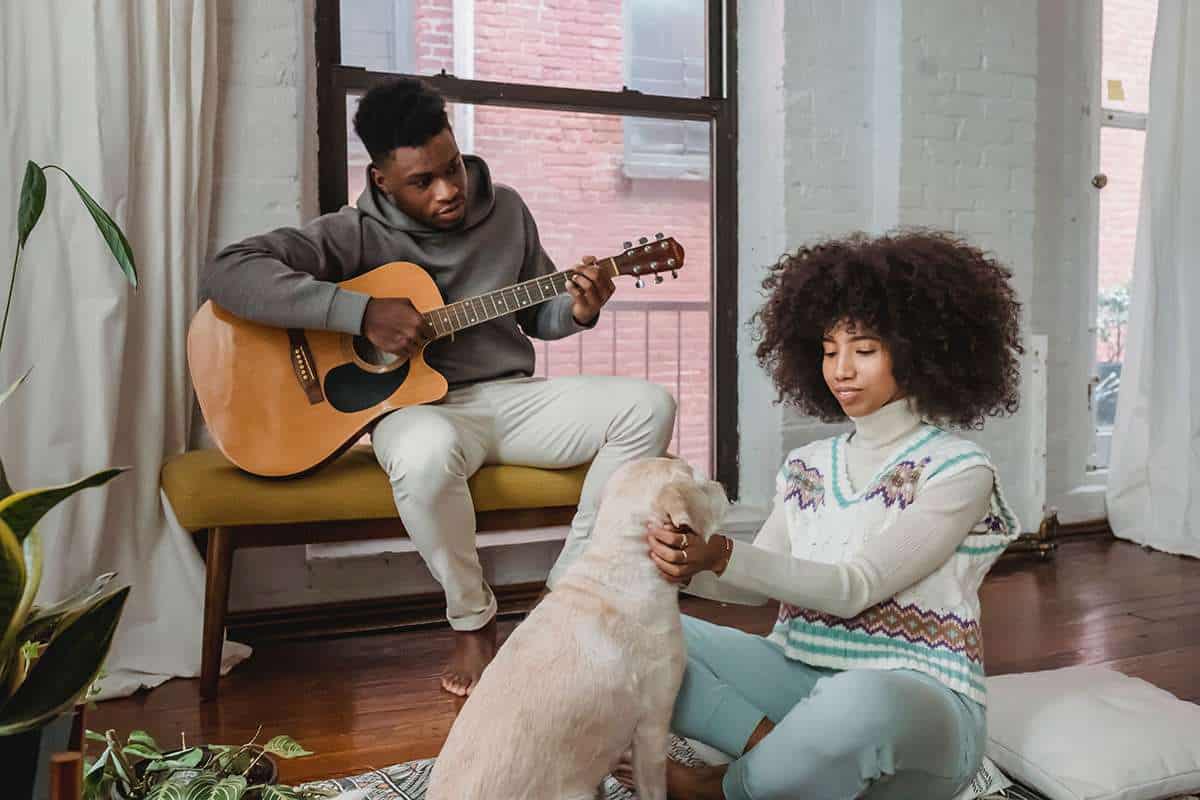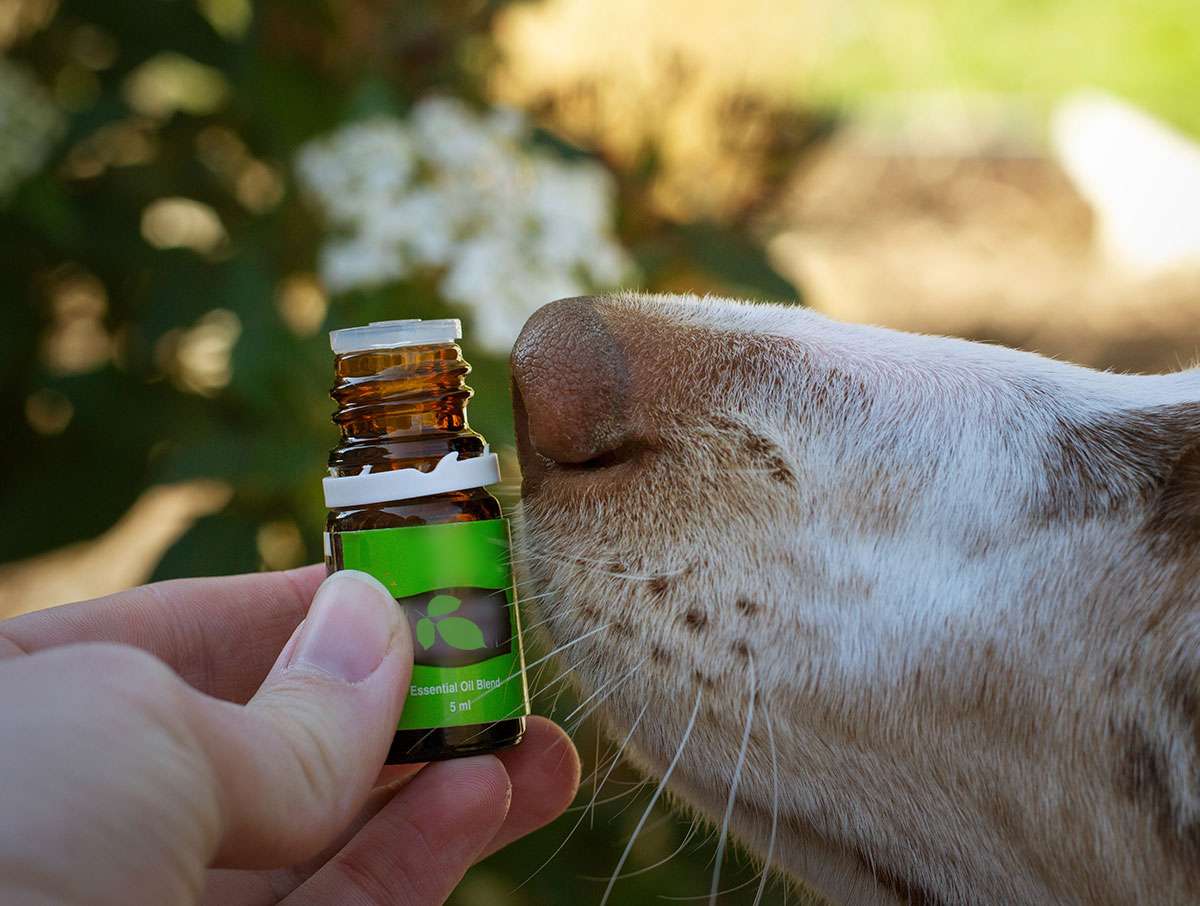For older dogs with separation anxiety, their golden years may come with a few gray clouds, and an increase in anxiety-related behaviors. But here’s the silver lining – with a blend of understanding, patience, and lifestyle tweaks, you can help your dog steer their way through these challenges. In fact, the later years can offer an opportunity for deepening the bond you share with your pet while ensuring their comfort and happiness.
Separation Anxiety Symptoms in Your Senior Dog
It’s important to understand that anxiety in dogs can show up in various ways. Some symptoms might be apparent, like increased aggression, excessive barking, or even destructive behaviors. Other signs might be a little trickier to spot, like a change in eating habits, sleep patterns, or your dog becoming clingier than usual.
It’s crucial that we don’t dismiss these behaviors as merely quirks of old age. They might be your dog’s way of telling you that they’re feeling anxious. So, the first step in addressing these behaviors is acknowledging them and seeking professional advice from your vet or a behavior consultant. They can help identify the root causes of the separation anxiety and rule out any medical issues.
Underlying Causes of Separation Anxiety in Older Dogs
Several factors can contribute to the onset of separation anxiety in older dogs:
- Cognitive Decline: Age-related cognitive dysfunction can lead to increased feelings of insecurity or confusion.
- Sensory Degradation: Impairments in vision or hearing can make the environment seem more threatening or unfamiliar.
- Environmental Shifts: Significant changes, such as relocation or the loss of a companion, can trigger anxiety.
- Physical Ailments: Underlying health issues or pain can also contribute to heightened anxiety levels.
Routines are Your Senior Dog’s Best Friend
Did you know that maintaining a predictable routine and environment can be a real game-changer for managing anxiety in your senior dog?
Think about it – dogs thrive on routine. They like knowing when it’s mealtime, walk time, and, of course, nap time! So, keep their feeding, exercise, and sleep schedules consistent. This structure can provide a sense of security and calm for your pet.
And remember, older dogs need their rest more than their younger counterparts, so ensure they have a quiet, secure, and comfortable spot to relax and sleep.
Tips for Managing a Senior Dog’s Separation Anxiety
Separation anxiety can be quite a challenge for older dogs. But don’t worry, there are ways to manage it.
Start by gradually getting your dog used to being alone. You can do this by leaving them alone for short periods and gradually increasing the duration over time. Another handy trick is to give them a special toy or treat when you’re away. This way, they associate your departure with something positive.
And if you’re out for longer periods, consider hiring a pet sitter or using doggy daycare services. This way, your dog isn’t alone and has some companionship.
Dealing with Stranger Anxiety
Stranger anxiety can also pop up as dogs age. Sometimes this can be due to their senses or cognitive abilities declining.
When visitors come over, provide your dog with a safe space where they can retreat to. And ask your guests to give your dog some space – let your dog approach them when they’re ready.
Remember to reward your dog for calm behavior around visitors. This can help them associate strangers with positive experiences.
Helping Your Senior Dog Navigate the World
As dogs age, their senses, like vision and hearing, may decline. This can increase their anxiety, as the world can become a bit more challenging to navigate.
Consider adding night lights to help your dog navigate in the dark. Non-slip rugs can provide a sure footing, and ramps can help them manage stairs more easily. Scent can also be a powerful tool. Using specific essential oils to mark important areas, like their food, water, or bed, can be really helpful for them.
Anxiety and Incontinence
Loss of bladder or bowel control can lead to increased anxiety in your senior dog. Provide them with regular bathroom breaks and easy access to the outdoors. Doggie diapers can also be a useful tool to manage incontinities.
And this is super important to remember – never punish your dog for accidents. It’s not their fault, and they’re probably already feeling stressed about it. Scolding or punishment will only increase their anxiety.
Your Behavior Matters Too
Last but not least, don’t forget that your behavior and reactions can significantly impact your senior dog’s anxiety levels. You know how when you’re feeling stressed or worried, your dog seems to pick up on it and acts a little off? That’s because dogs are incredibly perceptive and tend to mirror their owners’ emotions.
Try to maintain a calm and patient demeanor around your pet. I know it’s easier said than done, especially when you’re worried about them. But your dog takes cues from you, so if you’re calm, it can help them feel calm too.
If your dog starts to display signs of anxiety when you’re getting ready to go out, spend some time working on counter-conditioning technique that aim to safely expose your dog to anxiety triggers, like seeing you leave or hearing keys.
Positive reinforcement goes a long way in managing anxiety. Reward your dog for calm behaviors. A gentle rub behind the ears, a soothing tone of voice, or their favorite treat can do wonders in promoting a sense of security and well-being for your aging pet.
Remember, the golden years can be a golden time for you and your dog. Yes, there might be more challenges and health issues to navigate, but with love, patience, and understanding, you can help your senior dog manage their anxiety and enjoy their later years.
Always consult with your veterinarian or a professional behavior consultant when in doubt. They can provide guidance tailored to your pet’s specific needs and circumstances.
For further information on senior dog anxiety, check out these sites:




Leave a Reply